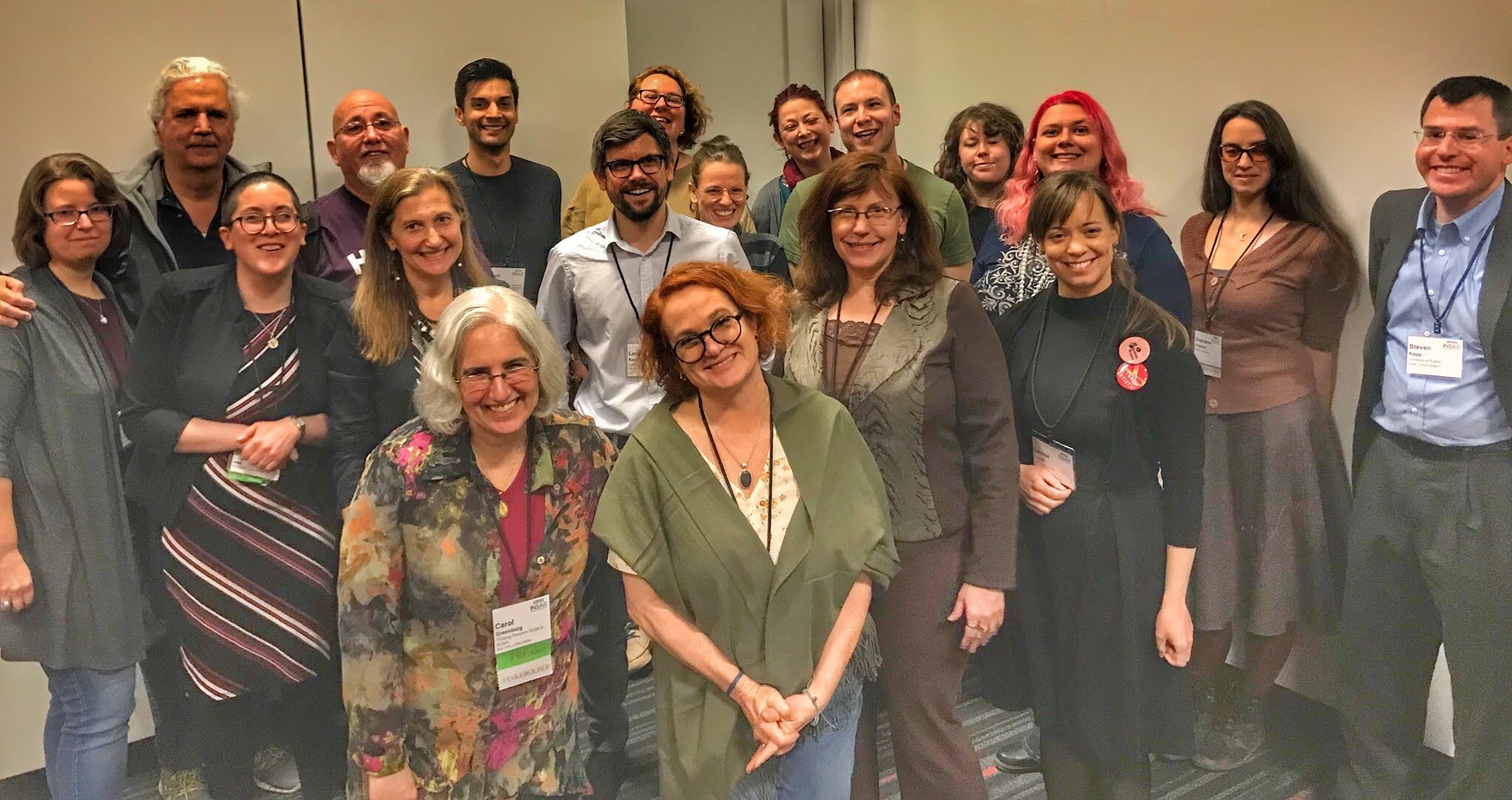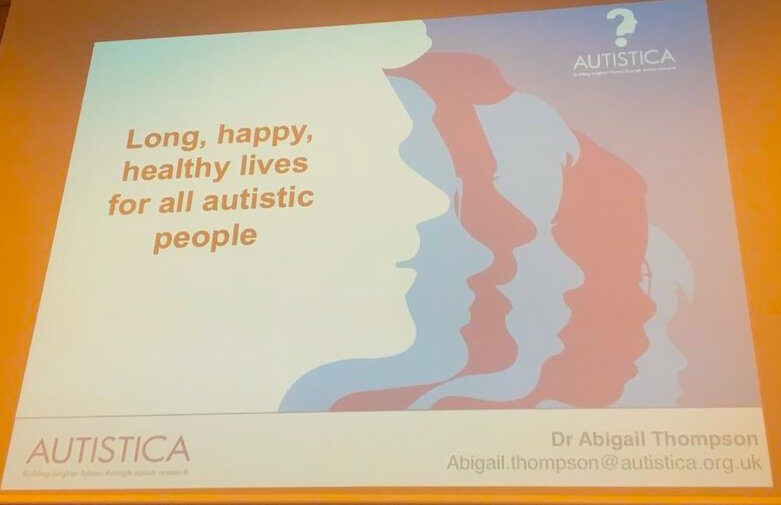AutINSAR is a conversation between autistic people and/or autism researchers about needed autism research directions, priorities, oversights, course corrections, and goals.
Tag: priorities
Shannon Des Roches Rosa Senior Editor, TPGA [Content note: This article discusses suicidality and ableism] The 2019 International Meeting for Autism Research in Montreal begins today, so let’s discuss how autism conferences can best help the autistic people without whom autism conferences would not exist—based on how past autism conferences have gone, what can improve, and why participatory research (involving autistic people themselves) needs to be prioritized. Last year’s INSAR 2018 conference gave me some hope for the future of autism research. I’d never before seen anything like the slide below at any INSAR conference, not since I first started attending INSAR in 2011 (when it was still “IMFAR”). This Autistica slide, with the the motto of “Long, happy, healthy lives for all autistic people” encapsulates everything I want from INSAR presenters, and autism research: Photo: Sara Luterman [image: Projected slide showing a group of human faces in profile, facing…
Some of the onsite #AutINSAR participants, left to right: Jon Adams, Sara Luterman, Donna Bish, Andrew Colombo-Dougovito, Lily Levy, Laura Crane, Mel Bovis, Carol Greenburg, Georgina Perez Liz, and Shannon Rosa. Not pictured: Jelle van Dijk Photo by Josie Blagrave. [Image description: Neurodiverse adults smiling and posing together] The #AutINSAR chat was an in-person and online Twitter discussion about autism research priorities, with the conversation taking place directly between autistic and/or autism researchers on May 11, 2018, at #INSAR2018, the International Society for Autism Research conference in Rotterdam, Netherlands. Many thanks to participants, and partners NOS Magazine, Autistic Self Advocacy Network, Autistic Women and Nonbinary Network, autchat, and We Are Like Your Child. We discussed the following questions: Q1: What should be the top three priorities for autism research? Q2: Which topics do #ActuallyAutistic people discuss that are missing from research conversations? Q3: What kind of technology research do you think would most improve #ActuallyAutistic…


